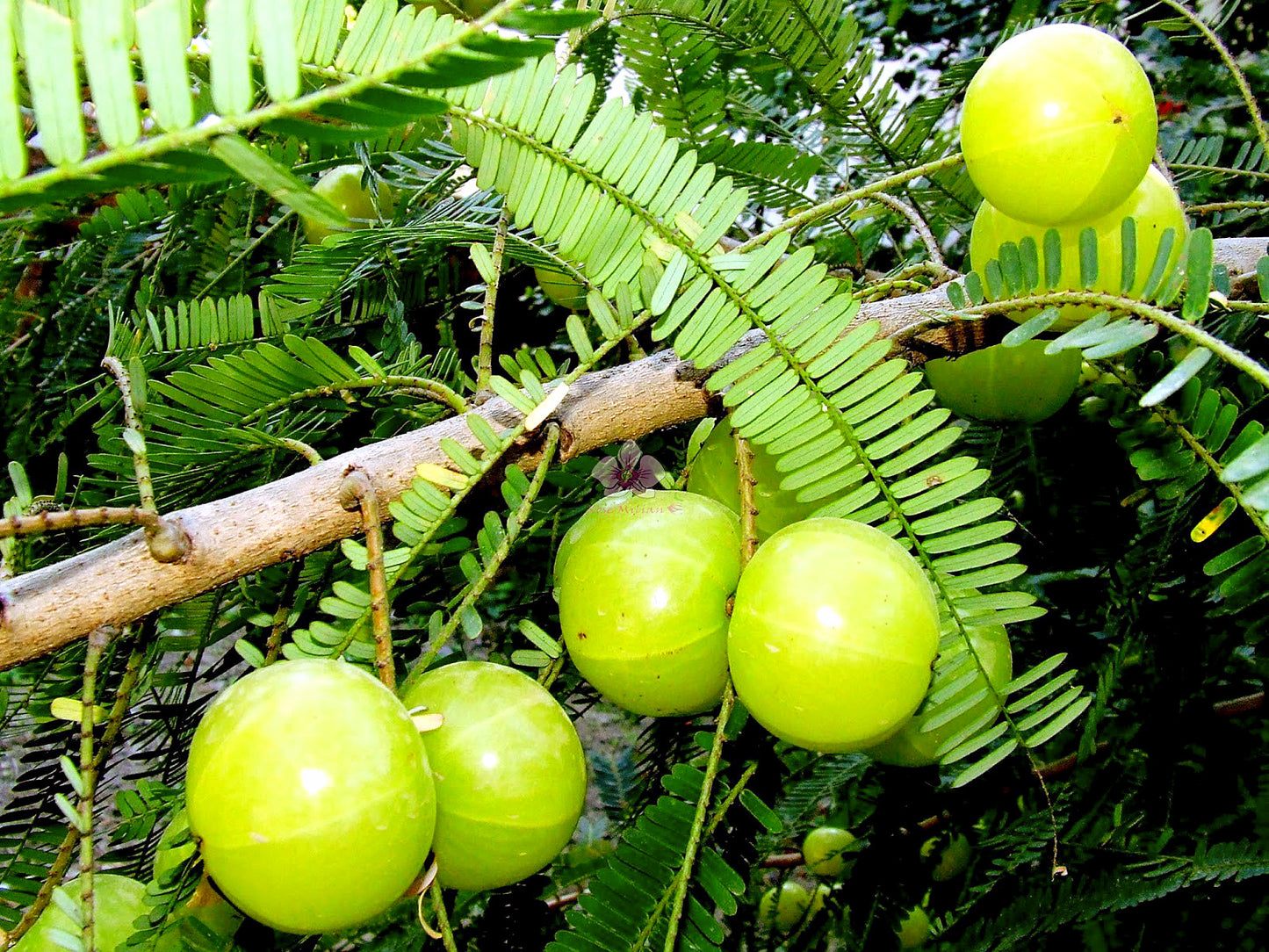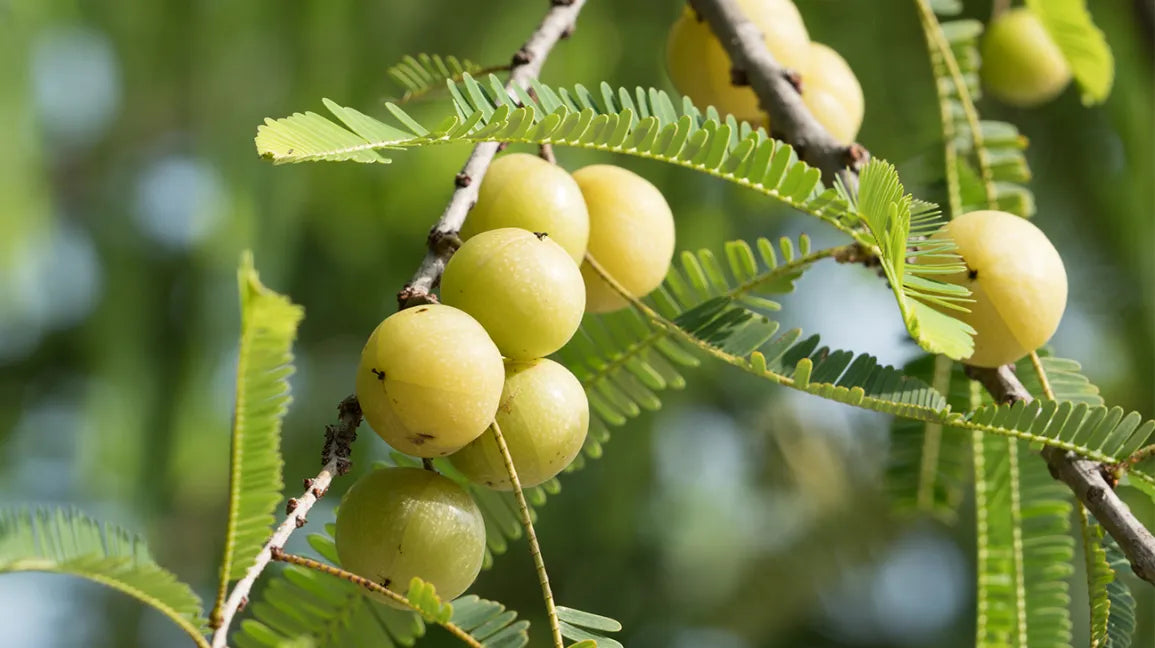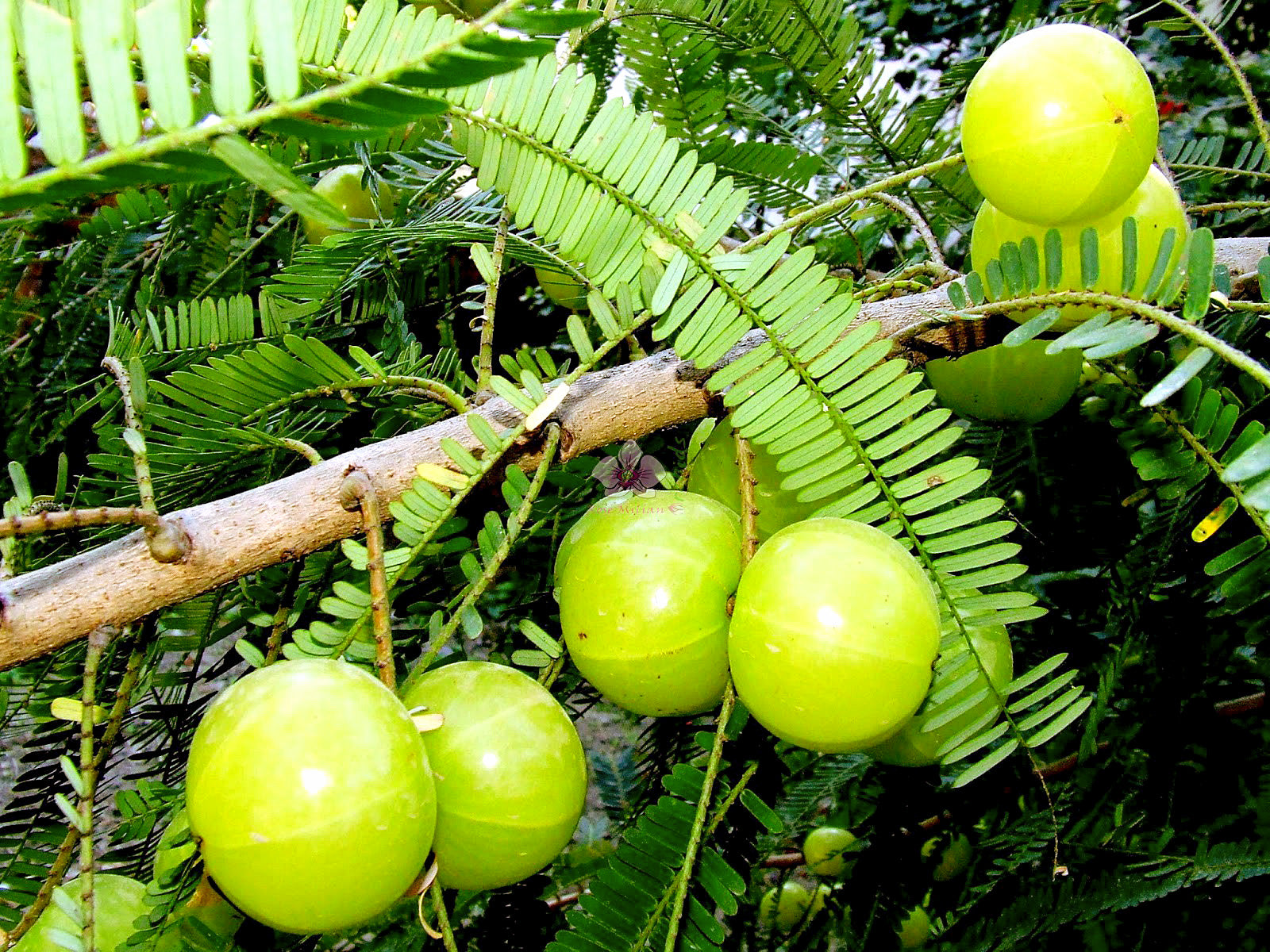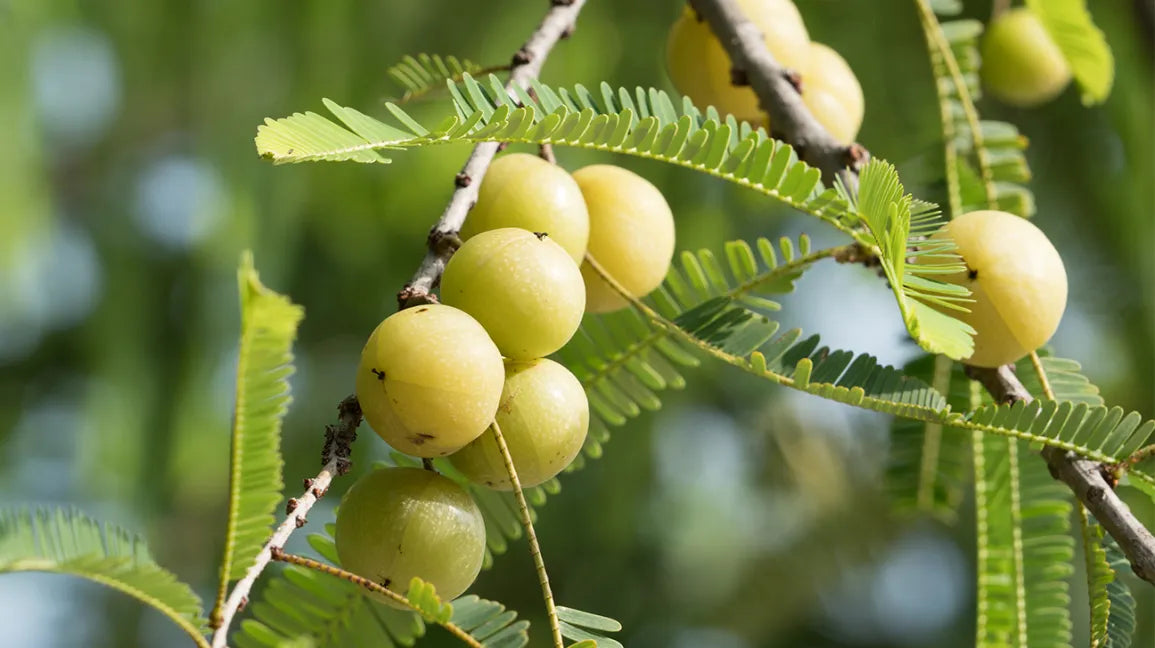Amla / Indian Gooseberry PREORDER for fulfillment after April 1
Amla / Indian Gooseberry PREORDER for fulfillment after April 1
3 inch Pot - 8 to 12" tall plant in 6" diameter x 7" tall pot. SHIPPABLE
1 gallon Pot - 8 to 16" tall plant in 5" x 5" x 6" tall pot. SHIPPABLE
Small Tree Pot - 8 to 16" tall plant in 5" x 5" x 6" tall pot. SHIPPABLE
Large Tree Pot - 8 to 16" tall plant in 5" x 5" x 12" tall pot. SHIPPABLE
3 gallon Pot - 18 to 36" tall plant in 10" diameter x 8" tall pot. IN STORE ONLY
5 gallon Pot - 30" to 60" tall plant in 11" diameter x 10" tall pot. IN STORE ONLY
15 gallon Pot - 60" to 75" tall plant in 17" diameter x 15" tall pot. IN STORE ONLY
Couldn't load pickup availability
Amla, also known as Indian gooseberry, is a fruiting tree native to the Indian subcontinent that has been valued for centuries in Ayurvedic medicine for its many health benefits. This plant is known for its small, round fruit that is greenish-yellow in color and has a very sour, astringent taste.
In Ayurveda, Amla is considered to be a powerful rasayana, or rejuvenator, that can help to promote overall health and longevity. It is believed to be an excellent source of Vitamin C, and is often used to boost the immune system and support respiratory health.
Amla is also thought to have anti-inflammatory and antioxidant properties, which can help to protect the body against oxidative stress and inflammation. It is commonly used to support healthy digestion, and is believed to be effective in treating a variety of digestive ailments, such as constipation, acid reflux, and ulcers.
In addition to its many healing properties, Amla is also used in a variety of culinary applications. The fruit is often used to make chutneys, pickles, and jams, and is also used in a variety of traditional Ayurvedic preparations.
ABOUT THIS PLANT
Botanic Name: Phyllanthus emblica
Common Names:
Amla,
Indian Gooseberry,
Amalaki,
Emblic,
Emblica
Lifespan: Perennial
Hardiness Zone: 9 to 11
Fruiting Season: Fall
Growth Structure: Amla trees can grow up to 26-59 feet tall, with a spreading or weeping growth habit. They have a light gray bark and feathery leaves that are 0.4-0.8 inches long.
Fertility Preference:
★
★
★
★
★
Water Preference:
★
★
★
★
★
Sun & Light Preference:
★
★
★
★
★
Years to Fruit: 10 years
Fruiting Season: Fall
Pruning Season: Spring
Edible?: Yes
Native to: India
Recommended Size for Container Growing: 30 gallon




